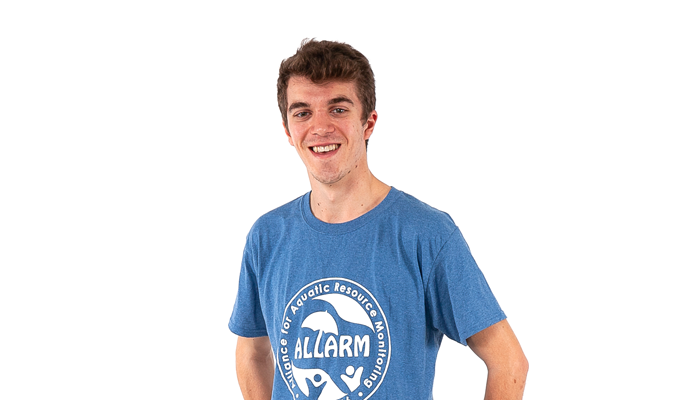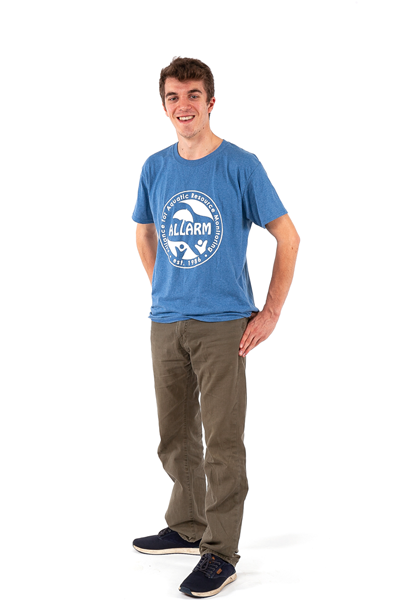Nick Long ’19

Nick Long

Nick Long '19 loved to spend time outdoors as a kid, exploring the natural world. At Dickinson, he got involved with the Alliance for Aquatic Resource Monitoring (ALLARM) and engaged in research with a postdoctorate researcher at Harvard and Shoals Marine Laboratory. After studying specialized gill anatomy in a variety of fishes, the biology major presented his original research at the annual conference of the Society for Integrative and Comparative Biology in San Francisco.
Hometown:
Acton, Mass.
Major:
Clubs and organizations:
WDCV college radio, Alliance for Aquatic Resource Monitoring (ALLARM), Junkyard Turkeys Ultimate Frisbee and Arts Collective
Honors/scholarships/awards:
Burkholder Biology Prize, Harry C. Zug ’34 Family Scholarship, Kenderdine Student Travel Fund
On choosing Dickinson:
I chose Dickinson because of its commitment to sustainability and to preparing students to be global citizens. My initial plan coming into Dickinson was to major in environmental science, but I ended up falling in love with my biology courses. I also think that the campus is beautiful and has lots of accessible and beautiful outdoor areas near it. I was impressed with the students, faculty and alumni who I met during my tour and in various meetings.
Favorite Dining Hall food:
The broccoli cheddar soup in a bread bowl. Nothing can beat it.
About my research:
I conducted a research project at the Harvard Museum of Comparative Zoology on the anatomy and function of the gill chamber of a family of deep-sea anglerfishes called chaunacidae, also known as sea toads or coffin fishes. I worked on this with a postdoctoral researcher at Harvard University. Then, with the help of the Kenderdine Student Travel Fund, I was able to present this research at the annual conference of the Society for Integrative and Comparative Biology in San Francisco during my junior year.
Post-Dickinson plans:
I hope to go into coastal resource management and protect vital ecosystems. This work could be with a governmental agency or a nonprofit organization, as long as I can see a tangible impact from my work. I think that I’d be most happy in a position that works with community members to address their local natural resource issues or helping contribute to work on a global scale.
Read more from the winter 2019 issue of Dickinson Magazine.
TAKE THE NEXT STEPS
Published February 15, 2019